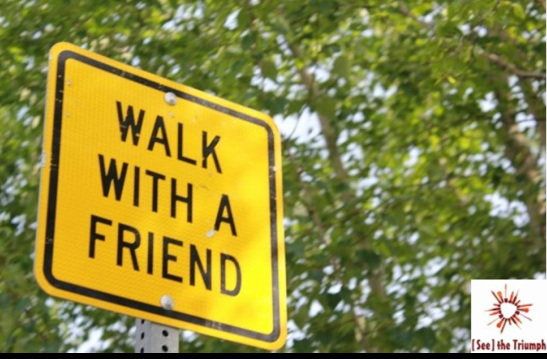|
Messages to College Students about Sexual Assault
By Allison Crowe, See the Triumph Co-Founder College students are at the highest risk for sexual assault, according to the Rape, Abuse, and Incest National Network (RAINN, 2014). For this reason, for the month of September, Christine and I wanted to focus on sexual assault and violence on college campuses, especially since we know many of you or your families are heading back to school. When searching for information to provide for you this month, I came across many tips and lists of information for staying safe on campus, which I will summarize in today’s blog post. One important note that I want to add before sharing any of this is that in no way do we believe that it is the victim of sexual assault who is responsible for preventing sexual assault from happening. In fact, I believe we should be directing far more messages to perpetrators so as not to suggest that it is the victim’s responsibility to not get sexually assaulted. It’s always the perpetrator’s responsibility to not assault people. Sure, there are plenty of ways to increase safety, and prevention is of course important. But I also believe that perpetrators out there need to hear messages as well, and that we currently do not have nearly enough of these out there. Along these lines, check out these tips that ConsentEd has given to perpetrators http://www.consented.ca/tools_for_change/givereal-tips/ rather than victims. Instead of, “Walk with a Friend” and “Cover your drink at a party.” what if we said, “Don’t put drugs in people’s drinks to control their behavior.” or “Don’t have sex with someone when they are asleep.” See the difference? The latter are clear messages that place responsibility on the perpetrator rather than a victim, thus eliminating the message that victim’s carry the responsibility. So, all of this to say, this blog post is on tips for staying safe, but I also believe that college campuses need to send more messages to perpetrators. Below are tips I found these on RAINN’s website about college life and staying safe. https://rainn.org/news-room/back-to-school-safety-tips-2013. Many of these are bigger messages to college students about how to “be” – more like guiding principles that I believe are helpful in many instances. I will list a few here that I think are especially important and ask that all of you visit their site to read more. 1. Be yourself and trust your gut. Your safety comes first and before anyone else’s feelings. If you are somewhere or with someone and something feels a little “off” find a way to remove yourself from the situation. 2. Don’t make assumptions. The college campus, as much as we want it to be a completely safe environment, is not a bubble. Often living on campus can create a false sense of safety. Remember that a lot happens on college campuses, just as in many other settings. 3. Speak up! If you witness violence on campus, let someone know. Your resident assistant, campus police, or local law enforcement should be notified immediately when you see anything that looks suspicious or overt acts of violence. 4. Be a good friend. Stick together. If you notice a friend who is not acting like him or herself, check in about what might be going on. Ask that your friends do the same for you, and talk to each other about the topic of sexual assault and other violence on college campuses. RAINN’s national sexual assault hotline is a wonderful resource to remember 1-800.656.HOPE or online at online.rainn.org. This month, I ask you to take some time to think about what we can all do related to the topic of sexual assault on college campuses. Information can be powerful, so share our web link, connect with See the Triumph on Facebook, or simply talk to someone about these issues. We can’t do this without you! Comments are closed.
|
Archives
July 2024
CategoriesAll About Intimate Partner Violence About Intimate Partner Violence Advocacy Ambassadors Children Churches College Campuses Cultural Issues Domestic Violence Awareness Month Financial Recovery How To Help A Friend Human Rights Human-rights Immigrants International Media Overcoming Past Abuse Overcoming-past-abuse Parenting Prevention Resources For Survivors Safe Relationships Following Abuse Schools Selfcare Self-care Sexual Assault Sexuality Social Justice Social-justice Stigma Supporting Survivors Survivor Quotes Survivor-quotes Survivor Stories Teen Dating Violence Trafficking Transformative-approaches |
Search by typing & pressing enter



 RSS Feed
RSS Feed